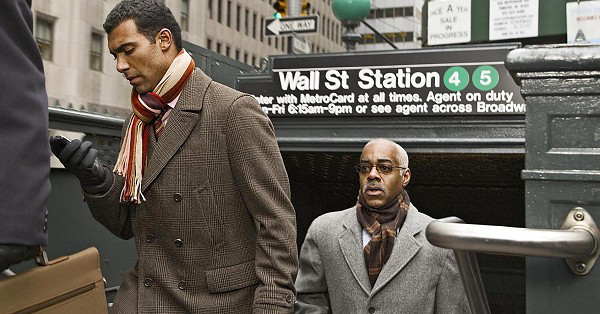
Air travel was far more of a novelty back in the last decades of the last century than it is now, so perhaps this is why it occasionally turns up in the horror cinema of the day: it was new enough and strange enough to suggest a ‘what if?’ beyond the more obvious answer to that question. Of course, there have been a great number of disaster movies through the years, but above and beyond this more conventional use of flight as a plot motif, esteemed horror authors such as Stephen King and James Herbert have used the theme in more creative ways; the resulting stories are probably too few in number to really be considered a sub-genre, but certainly innovative enough to deserve appreciation, and the filmed version of James Herbert’s story The Survivor is something of a minor gem.
As a fairly hysterical air passenger at the best of times – supernatural interference very much not required – the opening scenes of The Survivor, which show a passenger jet crashing into a Sydney suburb, are still very shocking and well-realised over thirty years after they were filmed. This sequence was, apparently, the reason that The Survivor was the most expensive film of its day. After the accident, and as we’re shown that the passengers must surely be beyond any help, a figure emerges from the wreckage. Somehow unscathed, the captain, Keller (Robert Powell) staggers to freedom. Suffering from memory loss, he’s taken to a nearby hospital to convalesce (oddly, nearly all of the staff and visitors have cut-glass Received Pronunciation accents) but despite his best efforts, he cannot remember anything of the accident, and there’s now an investigation to contend with, too. All of this would be traumatic enough, but it seems that in the suburb where the accident happened, strange phenomena are beginning to afflict the remaining residents. A local psychic (Jenny Agutter) is particularly affected by all of this, hearing the voices of the doomed passengers and their screams for help. She deduces that the spirits of the dead want to contact Keller, and as she begins to work with him to try and solve the mystery of what happened, an escalating nightmare of strange goings-on overtakes them both.

Whilst beyond the initial high-action sequences of the crash this is not a fast-paced film, The Survivor really does manage to create a certain eeriness on-screen, even via elements which relate to the all-too-earthly horrors of the accident. For example, the footage of scraps of remnant clothing billowing from the branches of trees where they have been tangled looks both picturesque and sinister, and the local church, being used as a temporary morgue, may be filled with smoke rather than the more conventional freezing fog, but it looks nonetheless striking. The supernatural phenomena which we’re shown is largely low-key, fits well with familiar ghost story tropes (you can’t go wrong with a terrifying omniscient child spectre, after all) but is also vividly coloured and very aesthetically pleasing overall, with a good cast playing it straight and sombre, with only one exception when Agutter goes full-on melodramatic as those voices from beyond the grave drive her a little round the twist. The transfer on this Blu-ray release is also superb and, shorn of the early 1980s clothes and hairstyles, you could be forgiven for thinking you’re looking at a brand-new film here. Then there’s a good ear for sound design, with music by Brian May (the Australian composer, not the Queen man) – all of which are features which help the film achieve its level of engagement.
The Survivor does not offer instant gratification, and it’s perhaps rather too long overall, but it’s interesting and atmospheric, features which compel you to want to get to the bottom of the film’s mysteries. As for the resolution of the film, it would seem that the supernatural and the earthly horrors here stick close together all the way, with an ambiguous finale and closing scenes which won’t be to everyone’s tastes, but I think were completely in keeping with the film overall. Director David Hemmings – who worked on Profondo Rosso, and so clearly understands ambiguity and spectacle – deserves this film to be more widely-known. Apart from anything else, the director of Donnie Darko owes him a thanks as there seem to be a lot of similarities in the plot, if not the manner of plot development…

The Severin Films release comes with a number of extra features, including an extended final sequence, as well as some interesting featurettes on the legacy of James Herbert.
KERI O’SHEA
BUY IT NOW
Advertisements Share this:




